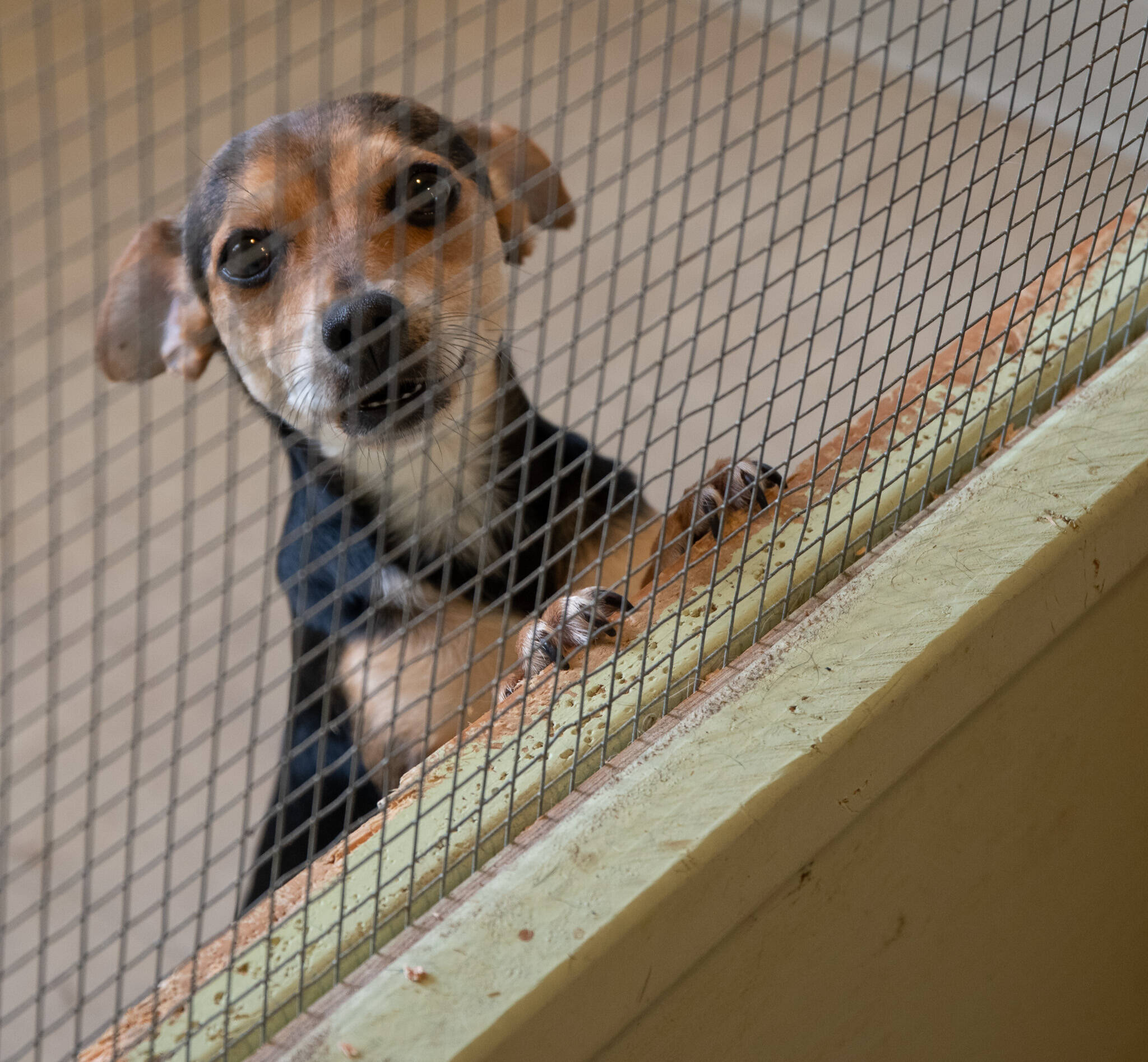The Olympic Peninsula Humane Society (OPHS) recently saved 25 small breed puppies from euthanasia at high-kill shelters in California and Mexico, the nonprofit announced last week.
The puppies range from 10 weeks to a year old.
“We regularly transport dogs, and sometimes cats, from shelters needing to clear space,” OPHS executive director Luanne Hinkle said in a press release.
“However, this was a critical need to save puppies who would have never had a chance in their young lives to experience love and a forever-home.”
OPHS volunteers who follow their old shelters on social media notified OPHS Bark House manager Nicole Miller of the urgent need.
“Since we work with Shelter Area Transport Rescue (START), who coordinates large-scale rescue transports, we reached out to see how we could help,” Miller said.
Volunteer Jacqueline Peterson coordinates rescues with START as well as other shelters , where she has created direct relationships. She and her husband Brooks often drive to Portland, Ore., to meet the START van that arrives from California or Mexico. There, animals are on boarded onto the OPHS van and transported to Port Angeles.
“Coordinating rescue transports is so fulfilling,” Peterson said. “We love OPHS and their commitment to helping and are honored to be part of the success story for pets that otherwise would not have a happy ending.
OPHS has saved 125 dogs from other shelters so far.
“The ongoing partnership with OPHS has truly been a life-saver for the adoptable animals that were previously at risk of death,” said Colleen Androvich, head of Operations for START in a press release.
“It is OPHS’s cooperative and professional approach, along with their high standard of care for their animals, which has made saving so many lives possible.”
Puppy challenges
“Taking on 25 puppies at once can be a little overwhelming when the shelter already has seven pups born from a previous transport of a pregnant dog,” Hinkle said. “And puppies take a lot of hands-on TLC … and lots of cleaning! This is added to an already very full kennel of 44 other dogs.”
An operation like this, Hinkle said, takes careful planning and coordination. Puppies need spay/neuter surgeries along with vaccines, and some need more medical attention.
“While it’s an extra staff and financial burden for OPHS, we couldn’t imagine not taking on the additional responsibility,” Hinkle said.
The total sheltered dogs as of March 21 was 69, she said, and OPHS expects five to eight more mastiff mix puppies to arrive soon.
Hinkle said that in addition to transportation costs, each dog can cost the shelter anywhere from $100 -$1000, or more if medical issues arise, before adopting them out.
Much of the funding to keep the shelter running comes from community members. “We have a wonderful, animal-loving community,” said Hinkle.
Hinkle encourages those who wish to help defray the additional costs of caring for the puppies to visit ophumanesociety.org/donate.
For more than 76 years, OPHS has maintained an active presence in Sequim, Port Angeles and surrounding areas. A private, nonprofit no-kill shelter, the organization cares for domestic animals of all types regardless of breed, health or disposition. It is financed primarily by private donations. More than 80,000 animals have been adopted over the years, OPHS representatives said.
For more than 76 years, OPHS has maintained an active presence in Sequim, Port Angeles and surrounding areas. A private, nonprofit no-kill shelter, the organization cares for domestic animals of all types regardless of breed, health or disposition. It is financed primarily by private donations. More than 80,000 animals have been adopted over the years, OPHS representatives said. For more information, call 360-457-8206 or visit ophumanesociety.org.
START Rescue is a 501(c)3 nonprofit that along with sponsoring spay/neuter services in California, coordinates large-scale, rescue-transport missions to save animals from overflowing and high-kill shelters by bringing them from overwhelmed areas to areas with open kennels, capacity and demand from adopters. Learn more about START at startrescue.org.
Sequim Gazette reporter Emily Matthiessen contributed to this article.
Adoption event set for April 5
OPHS is holding an adoption event 10 a.m.-2 p.m. Wednesday, April 5, at Best Friend Nutrition, 680 W. Washington St. #B102, featuring the puppies who have already had their spay/neuter operation and vaccines. Included are some of the seven puppies of the German shepherd mix Phoenix, who came to the shelter pregnant. The other puppies are small-breed mixes, including chihuahua and border collie.
People who have a pre-approved application can take a puppy home that day, shelter staff said, while others can fill an application out at the event and come to the shelter the next day for any puppies remaining.
OPHS will hold more adoption events, which will be listed on their website (ophumanesociety.org). Applications can be filled out there, too.


